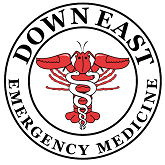Journal Club - Racism is a Public Health Problem
/In the United States, racism is a critical public health problem, permeating everyday systems including educational and health care systems; criminal justice and legal systems; financial, housing, and economic systems; environmental issues and beyond to create differential health outcomes that adversely affect Black, Indigenous, and other people of color. This pervasive system of power is based on the socio-politically constructed notion that non-Hispanic white people are inherently superior to people of color (Black, African American, Indigenous, Native American, Alaska Native, Native Hawaiian, Pacific Islander, Asian, Latine, Hispanic) and this ideology operates across multiple levels (individual, interpersonal, institutional) to unjustly advantage non-Hispanic white people, unjustly disadvantaging people of color. We recognize that racism is an important cause of health disparities and that, as health care providers, we have a responsibility to educate ourselves about racism so that we will be prepared to acknowledge the impact of racism on our patients’ health and work towards more equitable systems in support of health equity. One important component of that education is learning how to engage in productive conversations about race and racism. In service of that goal, we chose Ijeoma Oluo’s book, So you want to talk about race, as our common read for this special Journal Club session.
Read More










